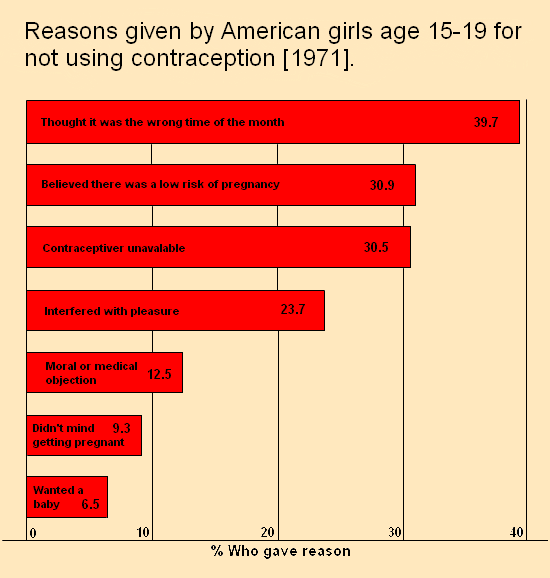Adult Education
First of all, parents have to make sure they are themselves well versed on the subject. Elizabeth Calleton (see following interview) says that while they're in the minority, "there are forty-year-old women who don't know any more about their anatomy and physiology than a thirteen-year-old girl." And there are probably forty-year-old men who are just as ignorant on a technical . level.
If anyone feels the need to bone up on basic knowledge in this area, his local Planned Parenthood Association can provide him with a wealth of educational information and even adult classes in many cases — or he might want to read on the subject alone — he'll be inundated by a veritable avalanche of material at his local bookstore or library. Works like Dr. David Reuben's What You Always Wanted To Know About Sex but Were Afraid To Ask explain the physical basics adequately.
Taking a sex education class sometimes has the added benefit of making it easier to discuss the subject at home. Some people who can't bring themselves to say certain words out loud can many times overcome this inhibition in a formal learning situation where such terms are used matter-of-factly by instructors and other adults.

source: 11 million teenagers. the alan guttmacher institute, 1976
|
A 1971 study revealed the reasons why
a group of sexually active teenage
girls (age 15-19) didn't use
birth-control methods.
Interestingly enough, only one girl
in 15 said she was trying
to have a baby.
|
Getting There First
Getting yourself properly educated about sex is the first step. Next, experts concur that the only way you as a parent can win the race with the gutter is to educate your child about sex at the earliest possible opportunity. If you wait till nursery school, it might be too late. (Any information you give your children should of course be tailored to their level of understanding. Trying to give them too much too soon can result in boredom or disinterest)
Educators agree that parents need to create an atmosphere of open communication on all subjects — then when questions about sex arise, they can be candidly and openly answered according to a child's level of understanding. Some parents (conditioned by their own parents' awkwardness) worry that children will be embarrassed or frightened by explicit, honest answers. Children who ask questions are curious — they want to know. And their attitude will be matter-of-fact as long as yours is. They want to find out, and they will find out (accurately or not) sooner than most parents would like to believe.
Some child-care experts believe it's a good idea for parents to acquaint themselves with the real medical names for all body parts and functions, and teach these names to their children at the same time they teach them about toes and fingers. And they of course feel it's a lot easier (and a lot more honest) to tell kids exactly where they came from (and how they got here) the first time they ask, rather than giving them the traditional runaround about storks or cabbage patches.
Pregnant friends or relatives can be a big help in this early education. It's fun for youngsters to listen to an unborn baby's heartbeat or feel him kick. It's also fun to help change diapers or give babies baths. This sort of open, natural approach can teach kids worlds more than any book.
But books can also be helpful — although it's better to read and discuss them with kids at an early age instead of waiting till they can read them alone.
Reading Bible stories to children can also open up all sorts of opportunities to discuss the morality of sex. An unexpurgated Bible might get an X-rating from some censors, but the stories it contains all have socially redeeming value — they teach a lot of important lessons that won't be lost on young minds. Also you can draw your own parallels between the way biblical characters behaved and the behavior you expect from your children.
And it goes without saying that one of the best ways to show children how sex fits into a well-lived life is by one's own example. If a marriage demonstrates the responsibility love and tenderness it ought, then children will pick up that attitude by osmosis. (For more on this subject, see the article Marriage Soon Obsolete?)
If you can make sex education a normal, natural, integral part of family life; if you can reach your kids' minds at a very early age, then you'll probably have nothing to worry about gutter-wise. When it's time for your girl to go to a slumber party, she'll be the one to dish out the straight scoop on "how it's done." She'll be the "gutter" the other kids learn from (although it's probably good to let a child know that most parents like to spread the word in their own special way when their children are ready). If and when your child's school covers human sexuality in class, you'll know that your child will be able to take this "neutral" information and view it through eyes that have already been trained to discern good and bad according to your family value system.
And when your son or daughter must make a personal decision about sex before marriage, then you'll know that they know how you expect them to behave, and the compelling reasons why.